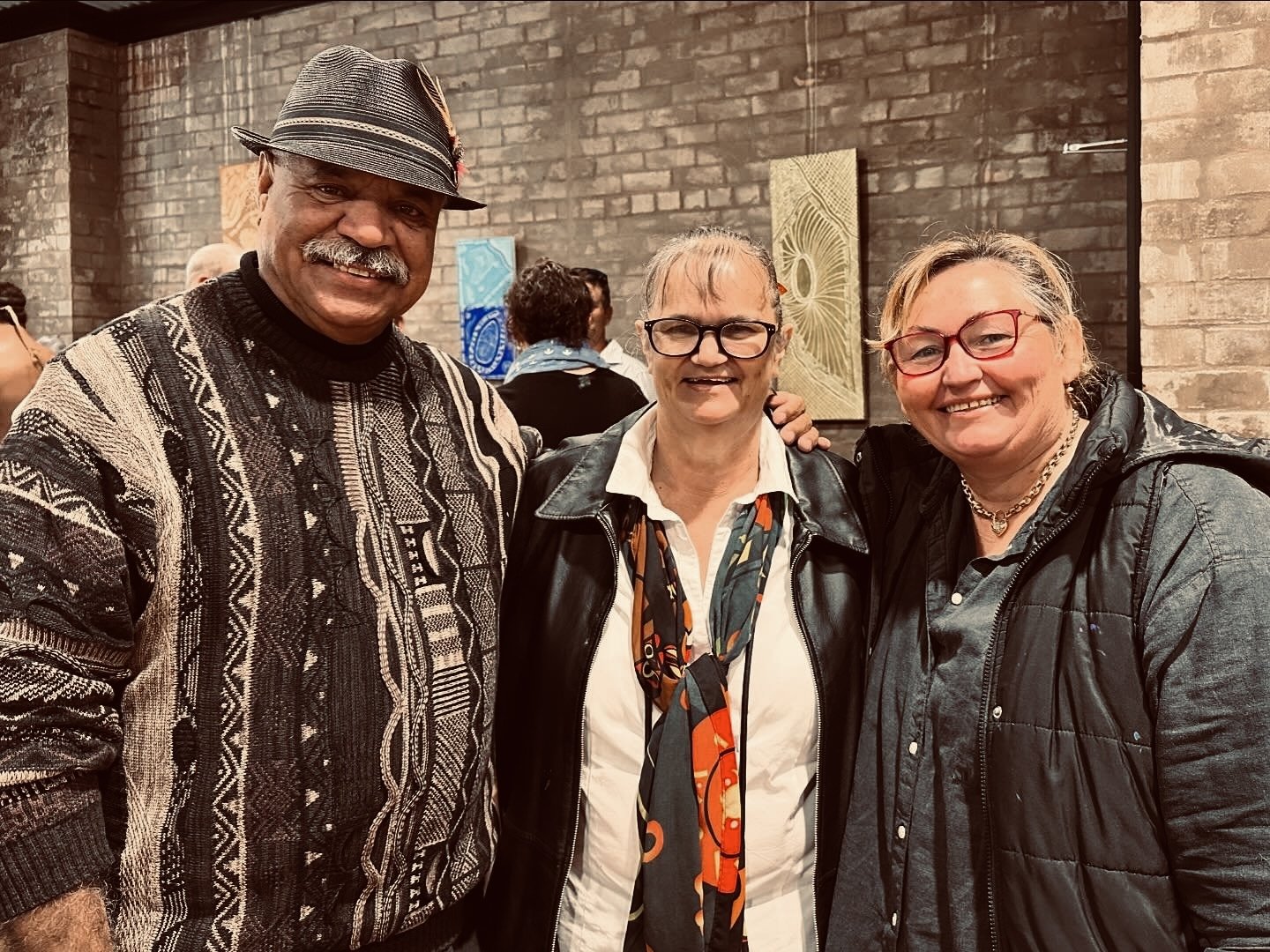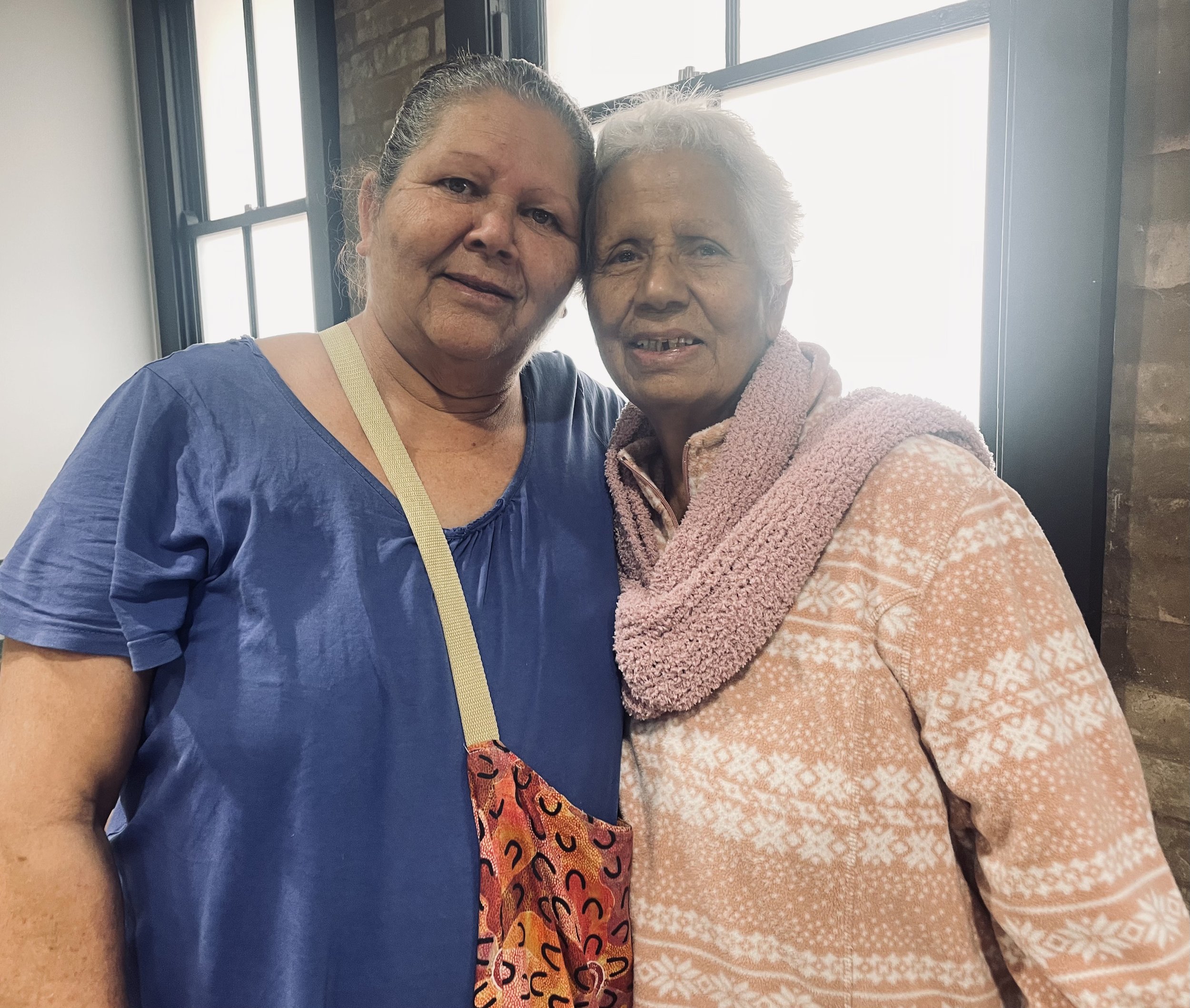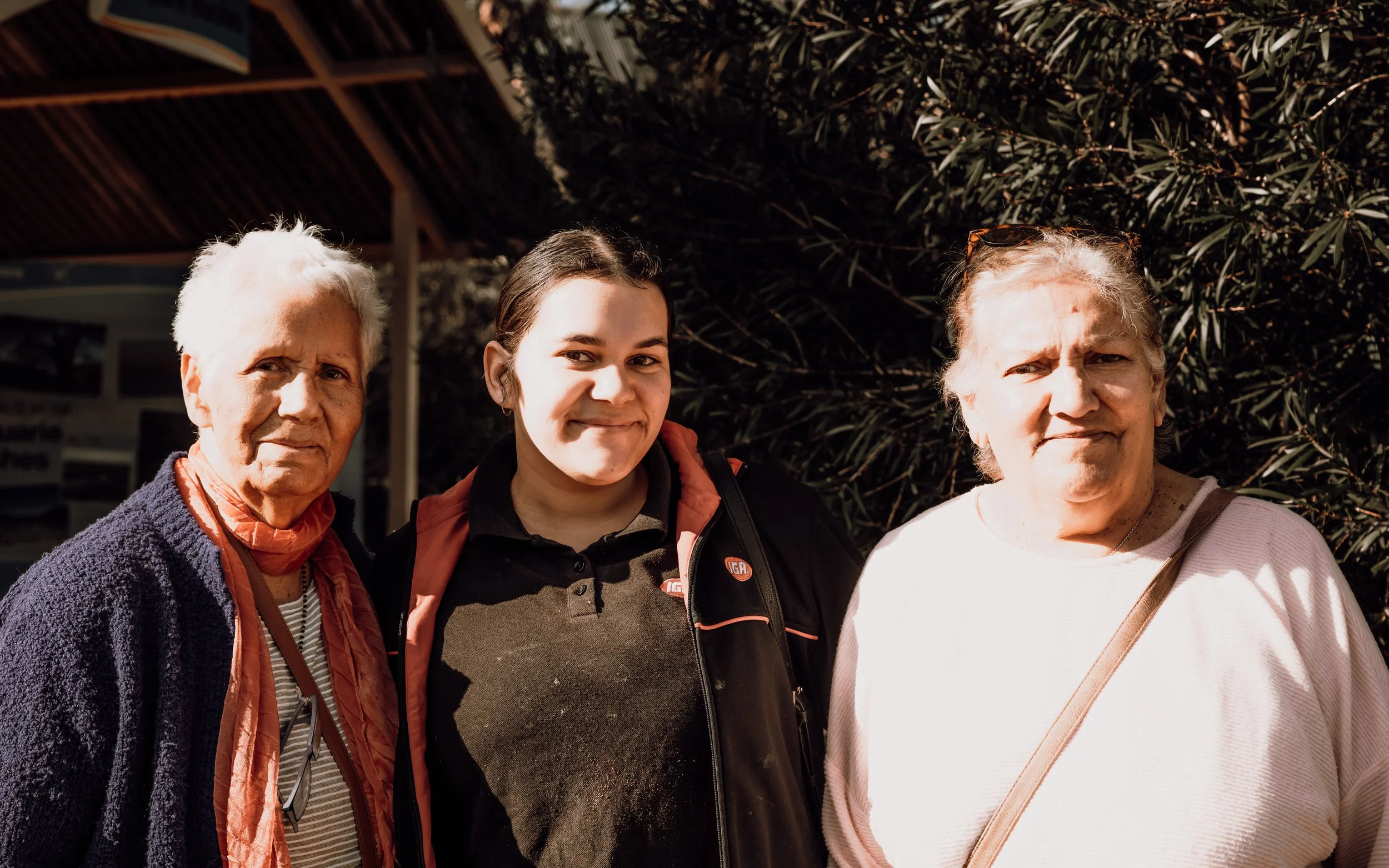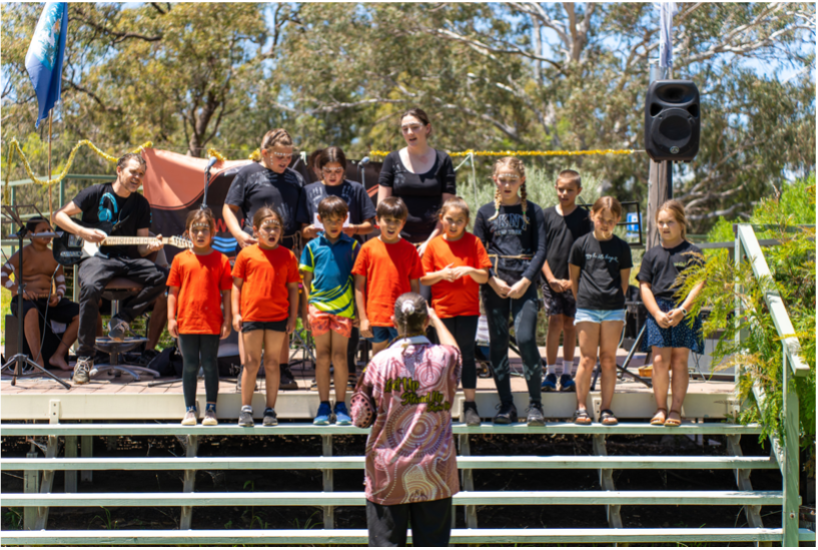
Winanga-li
Dharma-y is the Wayilwan word for
clever person/teacher…
Opportunities on Country for knowledge sharing empowers local youth and provides them with a sense of belonging and identity.
Our decision making is guided by listening to our local Elders and knowledge holders
Our Elders guide the younger generations toward truth-telling & what was important to our ancestors: respect, responsibility & relationship - Aunty Beth Wright
Our Elders guide the younger generations toward truth-telling & what was important to our ancestors: respect, responsibility & relationship - Aunty Beth Wright
Our young musicians, dancers & artists invite family & Elders to participate in the artistic experiences which contribute in shaping them as people & change makers.















Aunty Beth Wright (Elizabeth Wright)…
Wayilwan knowledge holder & Warraan Widji Arts’ cultural advisor & teacher…
Aunty Beth is from the Wayilwan Nation (Warren) and the Gamilaraay Nation (Walget). Aunty Beth has been instrumental in reawakening the Wayilwan language, her father’s Language, in Warren. She has a deep understanding of linguistics in relation to Aboriginal languages.
Aunty Beth spent hundreds of hours listening to recordings of Wayilwan Elders housed in the sound archives of the Australian Institute of Aboriginal and Torres Strait Islander Studies (AIATSIS) in Canberra. Aunty Beth did this to ensure Wayilwan language can be used by future generations and for the empowerment of our local Aboriginal community.
Aunty Beth grew up on Gamilaraay and Yuwaalaraay Country. Aunty Beth learned and taught the Gamilaraay and Yuwaalaraay languages when she was living on Country. Aunty Beth and her family moved to Dubbo, Wiradjuri Country, and has lived there for many years. She waited for permission to learn the Wiradjuri language and to be able to teach it. Her dreaming is teaching and sharing knowledge about languages and culture, including bush foods and medicines.
Aunty Beth’s parents Jenny Wright (nee Simpson) and Peter Wright were instrumental in teaching her about her culture. Ronald (Tiger) Cochrane, her father-in-law, shared his knowledge and understanding of Aboriginal bush foods and medicines, Aboriginal astronomy and messages animal’s bring.
Aunty Beth imparts knowledge powerfully to young people and adults to awaken and strengthen our language, culture and identity. Aunty Beth has high level cultural competencies. She ensures the cultural safety of local communities through listening to community and following their lead. She has been provided permission by the local Warren community to teach Wayilwan language in Warren.
Aunty Beth teaches 7 Aboriginal languages. Aunty Beth and Uncle John have 4 daughters and 9 grandchildren. Aunty Beth has the ability to quickly build trust and a positive rapport with young people, an essential skill when working with youth.
Documents which inform our policy development …
1. Cultural Heritage
United Nations Declaration on the Rights of Indigenous Peoples
Hobson, J., Lowe, K., Poetsch, S. and Walsh, M. (eds). 2010. Re-awakening Languages: Theory and Practice in the Revitalisation of Australia's Indigenous Languages. Sydney: Sydney University Press. DOI: 10.30722/sup.9781920899554
Access book here
2. Resource Collection Development
Aboriginal and Torres Strait Islander Protocols for Libraries, Archives and Information Services
3. Delivering programs, workshops and activities for children and youth
Implementing the Stronger Smarter Approach
Strong and Smart - Towards a Pedagogy for Emancipation: Education for First Peoples
Office of the Children's Guardian
4. The Arts
Protocols for Using First Nations Cultural and Intellectual Property in the Arts
Aboriginal Arts and Culture Protocols
5. Cultural Capability







